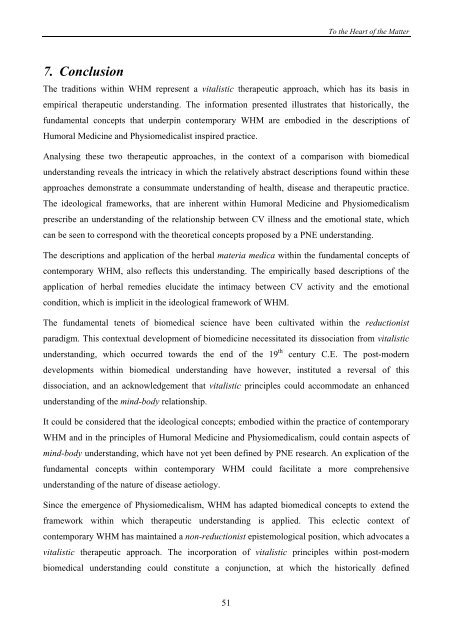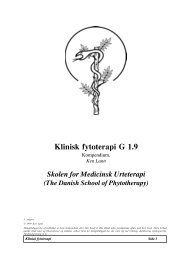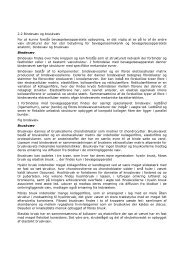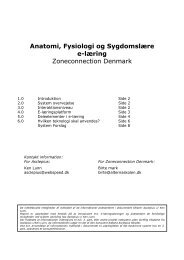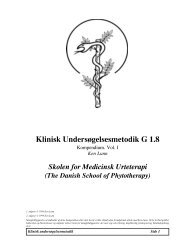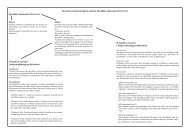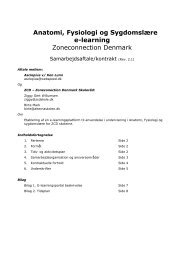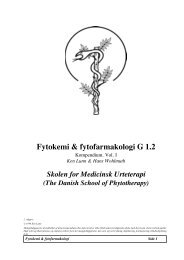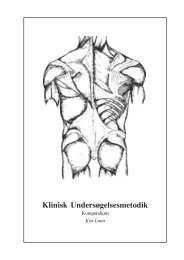PDF File - Asclepius Herbal Consultancy
PDF File - Asclepius Herbal Consultancy
PDF File - Asclepius Herbal Consultancy
You also want an ePaper? Increase the reach of your titles
YUMPU automatically turns print PDFs into web optimized ePapers that Google loves.
7. Conclusion<br />
To the Heart of the Matter<br />
The traditions within WHM represent a vitalistic therapeutic approach, which has its basis in<br />
empirical therapeutic understanding. The information presented illustrates that historically, the<br />
fundamental concepts that underpin contemporary WHM are embodied in the descriptions of<br />
Humoral Medicine and Physiomedicalist inspired practice.<br />
Analysing these two therapeutic approaches, in the context of a comparison with biomedical<br />
understanding reveals the intricacy in which the relatively abstract descriptions found within these<br />
approaches demonstrate a consummate understanding of health, disease and therapeutic practice.<br />
The ideological frameworks, that are inherent within Humoral Medicine and Physiomedicalism<br />
prescribe an understanding of the relationship between CV illness and the emotional state, which<br />
can be seen to correspond with the theoretical concepts proposed by a PNE understanding.<br />
The descriptions and application of the herbal materia medica within the fundamental concepts of<br />
contemporary WHM, also reflects this understanding. The empirically based descriptions of the<br />
application of herbal remedies elucidate the intimacy between CV activity and the emotional<br />
condition, which is implicit in the ideological framework of WHM.<br />
The fundamental tenets of biomedical science have been cultivated within the reductionist<br />
paradigm. This contextual development of biomedicine necessitated its dissociation from vitalistic<br />
understanding, which occurred towards the end of the 19 th century C.E. The post-modern<br />
developments within biomedical understanding have however, instituted a reversal of this<br />
dissociation, and an acknowledgement that vitalistic principles could accommodate an enhanced<br />
understanding of the mind-body relationship.<br />
It could be considered that the ideological concepts; embodied within the practice of contemporary<br />
WHM and in the principles of Humoral Medicine and Physiomedicalism, could contain aspects of<br />
mind-body understanding, which have not yet been defined by PNE research. An explication of the<br />
fundamental concepts within contemporary WHM could facilitate a more comprehensive<br />
understanding of the nature of disease aetiology.<br />
Since the emergence of Physiomedicalism, WHM has adapted biomedical concepts to extend the<br />
framework within which therapeutic understanding is applied. This eclectic context of<br />
contemporary WHM has maintained a non-reductionist epistemological position, which advocates a<br />
vitalistic therapeutic approach. The incorporation of vitalistic principles within post-modern<br />
biomedical understanding could constitute a conjunction, at which the historically defined<br />
51


